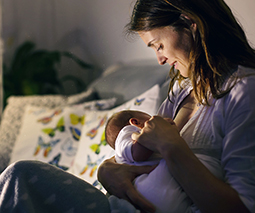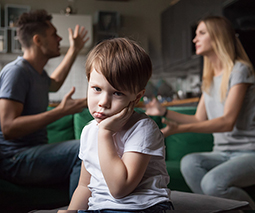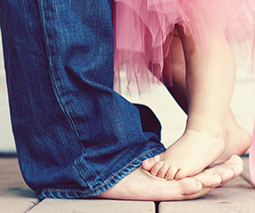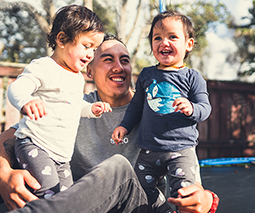Bickering in front of your kids is actually a good thing (every now and then)

I’ve always found it strange that parents are expected to hide any bickering and angry tones from children.
Healthy conflict
Not only is it incredibly hard to keep on positive terms with your partner all the time, but pretending that adults never disagree with each other is just setting kids up with misguided expectations about how relationships work.
Now, a recent study revealed that children can benefit from witnessing healthy conflicts between parents. According to the article, researchers from Washington State University said that ‘healthy conflict’ is better than suppressing negative emotions, which will only teach children to do the same. Children can learn from watching parents interact honestly with each other, and while they don’t need to see violent arguments with lots of yelling, it’s quite okay for them to see you experience a range of different emotions.
Read more about conflict:
- Timeout! 7 simple ways to minimise the sibling squabbles at your place
- How to handle co-parenting when you’re at war with your ex
- How to parent through partner disagreements
What’s healthy about conflict?
It’s ridiculous to pretend that two humans living in close confines and raising children together are never going to bicker. We all get stressed out and upset with each other, and there’s nothing wrong with expressing this if it’s done respectfully. Healthy conflict is about resisting blame and expressing views to work towards a resolution. That means no name calling and plenty of ‘I’ statements. Obviously, this isn’t always easy to do in the heat of the moment, but if you’re feeling too angry, you can simply express that you need to take a break to cool down before you can continue.
Conflict is hard to handle
Conflict is hard for many of us, so how do we expect children to learn how to manage it if they don’t see us going through it? If children witness healthy conflict, they’re going to be more likely to copy it in their own relationships, with kids their own age, and as they grow up to be teens and into adulthood. Additionally, conflict needs to happen for views to be expressed and relationships to grow closer. Naturally, we want our children to do it in a way that brings them benefits, not more trouble, so it’s up to us to teach them how.
Emotions need to be expressed
Kids learn everything from us, including how to express feelings – especially those tricky ones like anger, shame and guilt. Unfortunately, many of us think these emotions should be denied and hidden away, but suppressing emotions always leads to them leaking out in some other shape or form. We are better off teaching our kids how to express themselves by showing them how we do it.
A good way to manage big emotions is to acknowledge them. Talk about the emotion, and what it’s like to feel it. “Let them see the whole trajectory,” said Sara Waters, assistant professor in Washington State University’s Department of Human Development. “That helps children learn to regulate their own emotions and solve problems. It’s best to let them know you feel angry and tell them what you’re going to do about it to make the situation better.”









